5 neat gadgets for everyday health
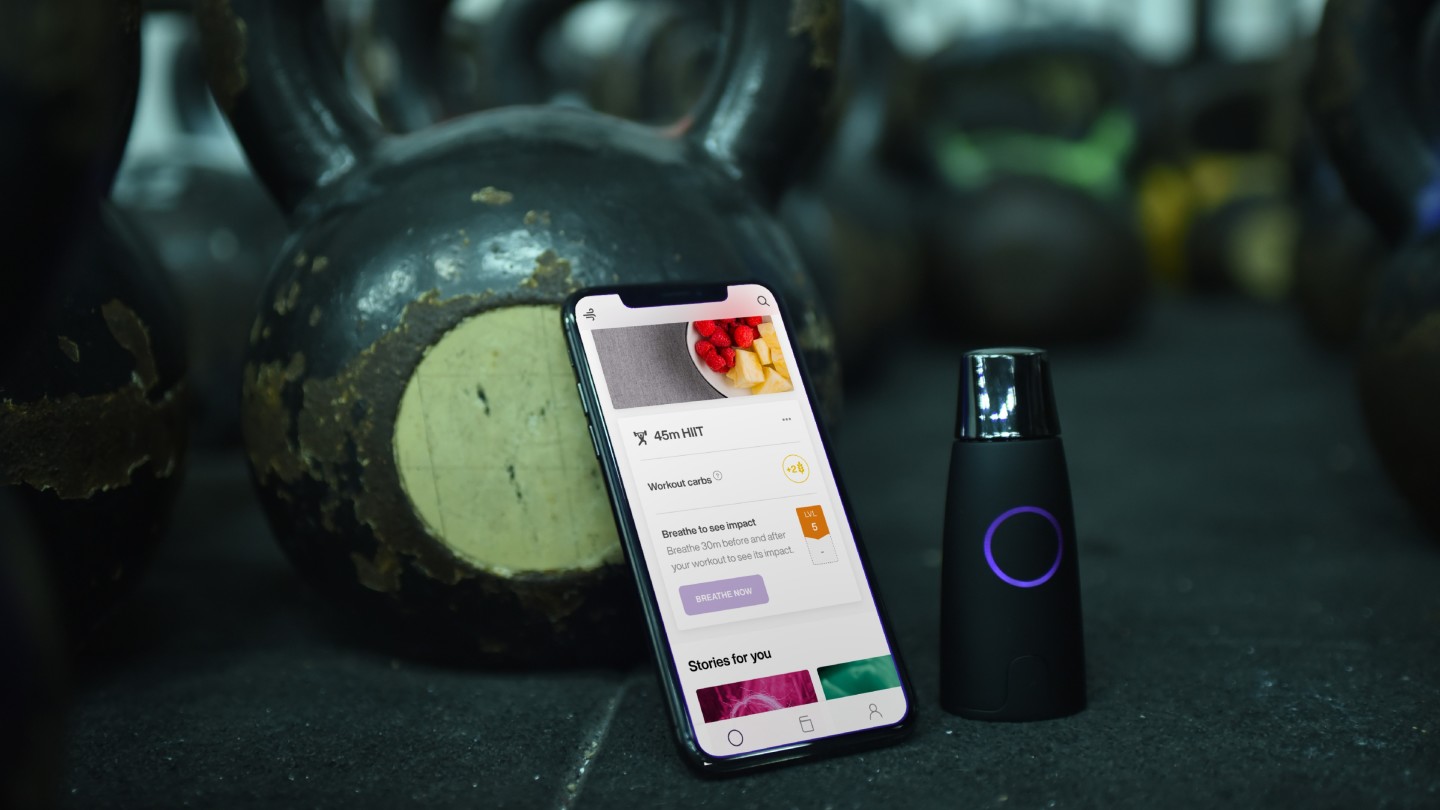
Roula Khalaf, Editor of the FT, selects her favourite stories in this weekly newsletter.
Losing weight the metabolic way
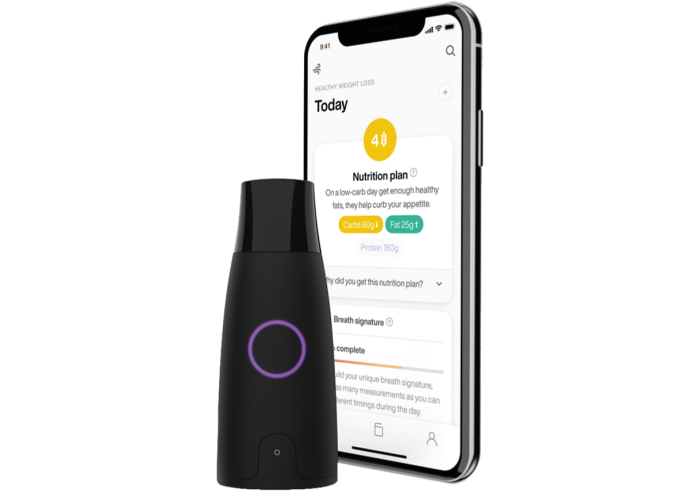
A claim by an electronics startup to have a handheld device that will “hack your metabolism” to help you lose weight is bound to raise scientific hackles, but the principle behind Lumen seems to be mainstream enough and the neat little device – which aims to do the same as complex laboratory setups do – is gaining independent plaudits. The idea is that by monitoring carbon dioxide in your breath, you can get an indication of your body’s metabolic fuel usage to gauge whether, at a given moment, you are burning carbs (not ideal for weight loss) or fat (good). Lumen also aims to crunch your results and recommend nutrition plans. It’s a slick device and accompanying app, and it felt like it was going to work on me when I tried it. A frugal evening meal followed by a long sleep fast and I was demonstrably burning fat. A late-night incident with a chocolate squirrel – all of it, don’t ask – and not only did I feel rotten but the Lumen indicated I was still burning the carbs the next morning. The precise way to breathe in and out with Lumen takes some getting used to, and you need to dive deep into the app to gain full value, but just seeing the basics of how I was doing was extremely helpful. Well worth a try. Lumen, £299
Diagnosing in the dark
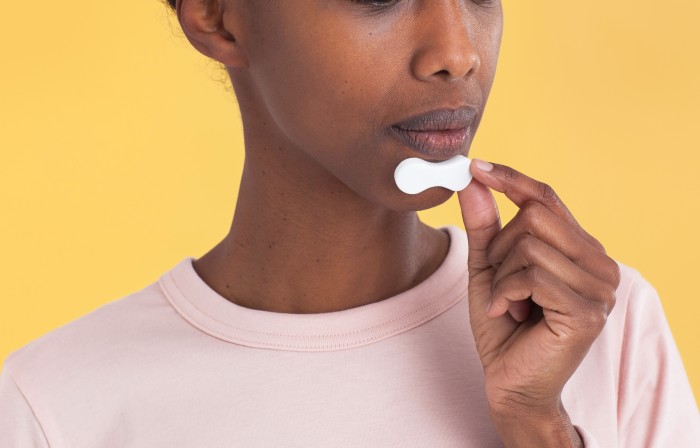
If you suspect you suffer from sleep apnoea, it’s quite a serious matter, for which you may need a mask to sleep properly and avoid health problems. But for apnoea to be observed and diagnosed, you first have to be wired up like an astronaut and then perform the almost impossible feat under those circumstances of falling asleep. And it’s not easy to get a test while hospitals are still tied up with more pressing matters. Sunrise, from a Brussels startup headed by the son of one of Belgium’s leading sleep doctors, simplifies the diagnosis. The device is a one-use sticky pad – perfectly comfortable on your chin – which measures your movements throughout the night with an accelerometer and a gyroscope. By morning, the sensor will have uploaded all your sleep metrics to the Sunrise app and crunched them in the cloud to give an idea of whether you have apnoea. If it seems you do (I didn’t), it will also connect you with a selection of sleep specialists to examine the data and advise you further. Sunrise, from £89
How to train your sleeping brain
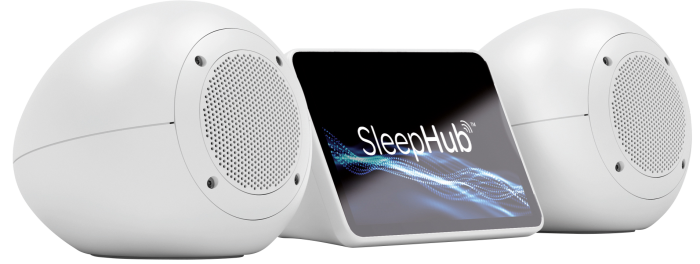
As technological sleep aids go, this British machine, SleepHub, made by Cambridge Sleep Sciences is a substantial beast. It looks like a bedroom stereo system, with a central unit and two quite heavyweight speakers that play a low pulsing hum designed to match the waveforms your brain produces during healthy sleep. These vary in frequency and pitch through the night to mimic what the sleeping brain should be registering. The sounds are designed to train your brain into matching them. The hum, which would be distracting, is then masked by ambient sounds of your choosing, from white noise to a running stream to trains. While it is a little on the elaborate side, a team of neuroscientists and sound technologists has spent 10 years on its development and it seems to work. An insomniac friend who tested it (and hates technology) grudgingly admitted it was “really helpful”. Other users report that their Fitbits and similar sleep trackers record longer and better-quality shut-eye when they are using the device. SleepHub, £399
Meet the foggers
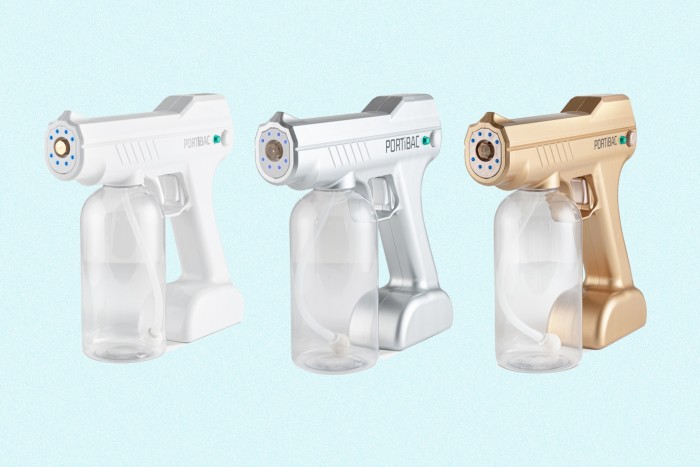
We now know that we are most likely to catch coronavirus from airborne particles, hence the ongoing importance of wearing a mask (see above). The risk of catching the virus from contaminated surfaces remains a risk nevertheless, which is why we’re still being urged to wash our hands regularly and clean frequently used surfaces in the home. This new sanitiser gun, the Portibac, is what’s known in the antiviral business as a fogger. “Fogging” sprays micro-droplets of disinfectant onto surfaces and into cracks and crevices. They’ve taken off in China and are available for a lot less than Portibac’s £150 on websites such as Alibaba. However, Handigroup, the Cheshire PPE company behind Portibac, says it took care to source and improve the best of the bunch. And it’s a quality product, with a satisfying motorised burr when you press the trigger, a variable mist and a useful blue headlight to see where you’re aiming. Many cheaper foggers say their headlight is ultraviolet, but Portibac makes no such claim. The disinfectant comes with all the relevant certifications, and is guaranteed suitable for food-preparation surfaces. It’s a non-alcoholic solution and is said to be 99.99 per cent effective against Covid-19 on surfaces. The one downside is that it has rather a sickly perfume (you can choose from three), but once, like Pavlov’s dog, you start to associate the smell with massacring Covid-19, you almost get to like it. Portibac 800ML Spray Gun, £150
The mask that’s gone antiviral
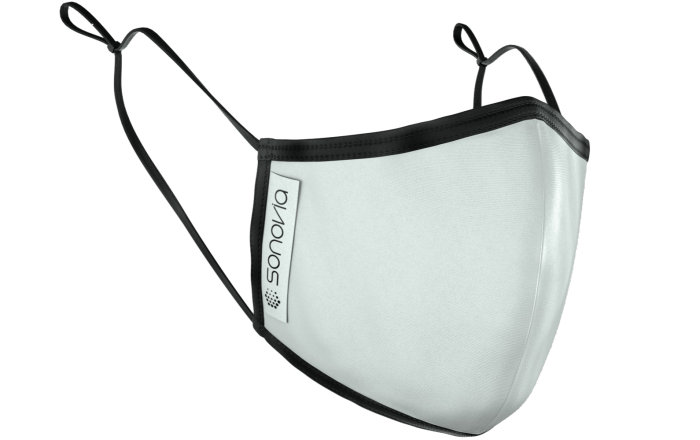
It’s a fair bet that many of us are going to continue to wear masks in crowded places for a long time. One of the many things I love about Sonovia’s masks made in Israel is that they are the result of more than 10 years’ research at Bar-Ilan University into fighting hospital-acquired infections. The research mission was to find a way to imbue fabrics with zinc oxide – a known antiviral – in such a way that the cloth can be washed repeatedly. Its solution, which uses ultrasonic technology, claims to keep the material actively virucidal for up to 55 washes (something that I’ve been told by Dr David Brookstein, a fabric-engineering expert at Temple University in Philadelphia, is quite the holy grail). Sonovia masks accordingly kill virus breathed both in and out. They also fit superbly and are breathable – I’ve worn mine for three hours on a walk and barely been aware of it. I’d also go so far as to say they look… quite nice. Sonovia Sonomask, from £33
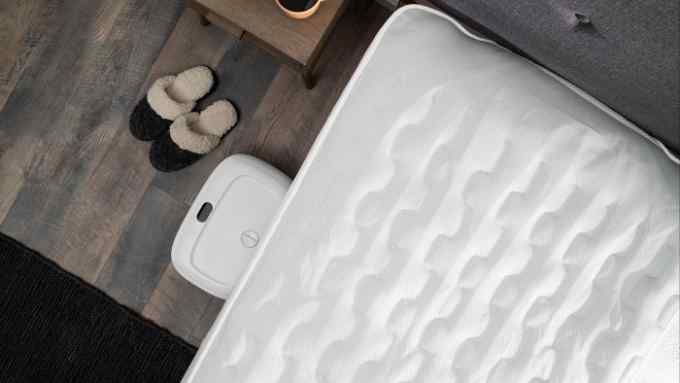
Comments